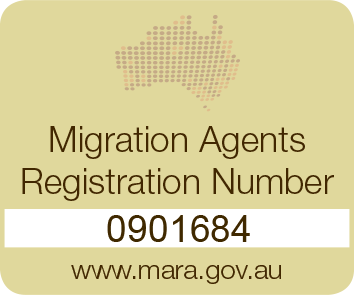Welcome to our new blog series for hospitality business owners and managers!
If you’re a hospitality business owner/operator, foreign hospitality workers will naturally be essential to your business
The hospitality sector enjoyed steady growth pre-covid, and there is little doubt that it will grow again once the pandemic restrictions are lifted.
Recent statistics released by the Australian Bureau of Standards (ABS) confirm that there are currently a huge number of unfilled vacancies in the hospitality sector (February 2021).
Migrant hospitality workers are critical to Australia’s post COVID-19 economic recovery, and the ABS numbers confirm there is a serious shortage of hospitality workers throughout Australia already.
The situation was bad enough before the pandemic, but is worse at the moment because so many temporary visa holders (who represent the majority of hospitality workers) were forced to return to their home country due to the lack of work caused by venue closures. Temporary visa holders were also not eligible for JobKeeper.
To add to the numbers problem, apprenticeship and trainee commencements and completion rates have been steadily declining since 2010. In 2019 for example, there were 7,830 apprentice and trainee commencements, but only 4,850 completions.
Program enrolments in hospitality related qualification courses were 102,217 in 2019, down from 116,030 in 2016. Completions however declined to 31,610 in 2019.
Projected growth post Covid is optimistic
Before the pandemic, the Australian Industry and Skills Committee provided the following hospitality snapshot:
The employment level for the accommodation industry remained fairly stable between 2000 and 2019, apart from some minor fluctuations. In 2020, however, figures have declined significantly from 105,500 in 2019 to 75,200 in 2020, representing the lowest employment level recorded since 2000. Projections indicate a growth in employments levels, to 112,900 by 2024. The food and beverage services industry has also experienced a notable decline between 2019 and 2020 (from 819,800 to 579,100), this comes after two decades of strong growth which began in 2000 at around 500,600. Employment levels are predicted to increase in this industry to 889,000 by 2024.
Most hospitality-related occupations are projected to show growth to 2024, with the strongest growth expected for Café Workers at close to 19% and Chefs with over 16%.
The projected growth in the industry is therefore quite substantial, and it is unnecessary to comment that hospitality businesses are not going to find sufficient staff from the existing pool of Australians, willing to work in the hospitality industry.
According to the Australian Bureau of Statistics (ABS), in February 2021, there were 27,600 vacancies in accommodation and food services.
Migrant workers are an investment in your business – but, it is expensive to recruit and nominate hospitality workers from overseas.
If you choose to nominate a migrant worker for eg temporary Subclass 482 (TSS Visas), the visa application alone costs are weighty not to mention the nomination costs and the ongoing obligations that employers must meet.
Are you thinking about employing migrant workers in your hospitality work in the following areas?
- Pubs and bars
- Taverns
- Café’s and restaurants
- Hotels, hospitality clubs and other accommodation
- Resorts
- Catering businesses
- Takeaway food services
Then your key hospitality occupations will be:
- Café and restaurant managers
- Retail managers
- Bar attendance and baristas
- Café workers
- Waiters
- Sales assistants
- Receptionists
- Hotel and motel managers
- Hotel service managers
And the top five occupations in demand in your industry are:
- Waiter
- Barista
- Café and restaurant manager
- Chef
- Food trades assistants
The information contained in this blog series will help you to:
- Find out about the different Visa types available to migrant hospitality workers
- Find out which hospitality occupations are on the relevant migration occupation lists
- Understand the requirements for employing migrant workers
- Understand your obligations as an employer of migrant workers
- Work out how to support new migrant workers and help them settle into their new roles, keeping them safe, happy, and working for you.
Watch out for our Focus On Hospitality blog posts each week, and before you know it you’ll be the expert!

 Points Test
Points Test
 Book Now
Book Now 


